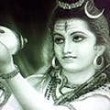Sapinda or not??
 aditisingh
(Querist) 02 April 2015
This query is : Resolved
aditisingh
(Querist) 02 April 2015
This query is : Resolved
Dear experts..
I have a situation where son of my uncle (mama) want to marry daughter of my aunt (bhua).... Is it possible According to Hindu marriage act??
 Rajendra K Goyal
(Expert) 02 April 2015
Rajendra K Goyal
(Expert) 02 April 2015
The Hindu Marriage Act, 1955
HINDU MARRIAGES
5. A marriage may be solemnized between any two Hindus, if the following conditions are fulfilled, namely:-
(iv) The parties are not within the degrees of prohibited relationship unless the custom or usage governing each of them permits of a marriage between the two;
(v) The parties are not sapindas of each other, unless the custom or usage governing each of them permits of a marriage between the two.
Sec 2. (f)
(i) "sapinda relationship" with reference to any person extends as far as the third generation (inclusive) in the line of ascent through the mother, and the fifth (inclusive) in the line of ascent through the father, the line being traced upwards in each case from the person concerned, who is to be counted as the first generation;
(ii) Two persons are said to be "sapindas" of each other if one is a lineal ascendant of the other within the limits of sapinda relationship, or if they have a common lineal ascendant who is within the limits of sapinda relationship with reference to each of them;
(g) "degrees of prohibited relationship"-two persons are said to be within the "degrees of prohibited relationship"
(i) If one is a lineal ascendant of the other; or
(ii) If one was the wife or husband of a lineal ascendant or descendant of the other ; or
(iii) If one was the wife of the brother or of the father's or mother's brother or of the grandfather's or grandmother's brother of the other; or
(iv) if the two are brother and sister, uncle and niece, aunt and nephew, or children of brother and sister or of two brothers or of two sisters ;
Explanation.-For the purposes of clauses (f) and (g), relationship includes-
(i) relationship by half or uterine blood as well as by full blood;
(ii) illegitimate blood relationship as well as legitimate; (iii) relationship by adoption as well as by blood ; and all terms of relationship in those clauses shall be construed accordingly
 Anirudh
(Expert) 02 April 2015
Anirudh
(Expert) 02 April 2015
The relationship is clearly a 'Sapinda' relationship and therefore prohibited under Hindu Marriage Act.
In North India, it is strictly prohibited.
However, in South India, there is a custom to perform marriages in such relationship and therefore is an exception to the Sapinda Rule.
 aditisingh
(Querist) 02 April 2015
aditisingh
(Querist) 02 April 2015
@ thangapandian sir,
bhua means my father's sister
mama means my mothers' brother
 aditisingh
(Querist) 02 April 2015
aditisingh
(Querist) 02 April 2015
@ anirudh sir,
are you sure that is a sapinda relationship...??
 SAINATH DEVALLA
(Expert) 02 April 2015
SAINATH DEVALLA
(Expert) 02 April 2015
Yes very much a sapinda relation, hence not permited
 M/s. Y-not legal services
(Expert) 02 April 2015
M/s. Y-not legal services
(Expert) 02 April 2015
Yes..as per your query the relationship is prohibited one.. They can not married..
 aditisingh
(Querist) 03 April 2015
aditisingh
(Querist) 03 April 2015
yes i understand now....and thank you so much for your replies....
i have read about costums , if there is a custom in that society which allow these marriages, they can marry than...
i cannt understand the exact meaning of custom.....
if someone already married in that conditions than it will be considered as customs there..? or customs is a written legal thing ??
plz help me to understand this
 SAINATH DEVALLA
(Expert) 03 April 2015
SAINATH DEVALLA
(Expert) 03 April 2015
If already married and living together,even the almighty will bless them.I would not advice U to go against the customs,
 prabhakar singh
(Expert) 03 April 2015
prabhakar singh
(Expert) 03 April 2015
Custom in law is the established pattern of behavior practiced since time immemorial, that can be objectively verified within a particular social setting or group. A claim can be carried out in defense of "what has always been done and accepted by law." Related is the idea of prescription or to marry even in prohibited degree of relation; a right enjoyed through long custom rather than positive law.
 aditisingh
(Querist) 03 April 2015
aditisingh
(Querist) 03 April 2015
Sir,
My cousins are not married, but in our society some marriages are done in cousins, so this is consider as costum here???
Or Law can protect their lifes Bcz local custom allow them to marry.
 SAINATH DEVALLA
(Expert) 03 April 2015
SAINATH DEVALLA
(Expert) 03 April 2015
If they are not married its ok, we have to respect our elders,traditions and customs.
 prabhakar singh
(Expert) 03 April 2015
prabhakar singh
(Expert) 03 April 2015
A marriage prohibited by positive law in general but allowed by a custom in particular society can be legally solemnized and when some one questions it's validity the affected party can plead and prove it lawful by its prevalent custom.
 aditisingh
(Querist) 03 April 2015
aditisingh
(Querist) 03 April 2015
@prabhakar sir....thanks a lot...
sir , what kind of proof need to prove it lawful...
is that enough if we give some names of cousin couple who already married in our society ??....
 prabhakar singh
(Expert) 03 April 2015
prabhakar singh
(Expert) 03 April 2015
Customs are generally proved by producing oral testimony of witnesses who tell court that it is prevalent in their society since time immemorial and they may cite marriages performed in past and in addition if there are ancient literature speaking about existence of such a custom then that too may be cited with advantage of corroboration of proof.
This kind of occasion arises only when some one assail such a marriage illegal.
 aditisingh
(Querist) 03 April 2015
aditisingh
(Querist) 03 April 2015
@ prabhakar sir,
Thank you so much....
And thank you everyone for their time and replies...
 prabhakar singh
(Expert) 03 April 2015
prabhakar singh
(Expert) 03 April 2015
At the time of my reply i did not notice about your original query which is whether or not a son of your maternal uncle can marry daughter of your father's sister?
Sapinda needs the existence of a common ancestor.In ancient time two theories were
in vogue.One of Vijnaneswara and the other of Jimutavahana.
However,The Hindu Marriage Act, 1955, provides a definition of Sapinda relationship. The definition has brushed aside Jimutavahana’s theory. It has modified Vijnaneswara’s theory. The modification consists in restricting the Sapinda relationship to 5 degrees on the father’s side and 3 degrees on the mother’s side while originally the computation was up to 7 and 5 degrees respectively.
It may be remembered that Sapinda relationship shall be computed upwards either through the mother or through the father or both and the person concerned shall always be counted as one degree.
the modification is to relax the rule of prohibition in relation to Sapinda relationship and to enlarge correspondingly the area of the circle of eligibility for purposes of marriage.
So if they are NOT traced TO A COMMON ANCESTOR,rule of sapinda does not come into their way.
 aditisingh
(Querist) 03 April 2015
aditisingh
(Querist) 03 April 2015
Ok.... Thank you sir....
Yes they are not from common ancestors
 Anirudh
(Expert) 03 April 2015
Anirudh
(Expert) 03 April 2015
Dear Aditi,
I am sorry. I am wrong. Let me stand corrected.
I misread the word "mama" as "uncle" meaning that it is your "chacha". Therefore I said that the son/daughter of mama and bhua are having Sapinda relationship.
Now when you said that they do not have common ancestors, I once again went back to your original post and found that you used the word "mama" and not "chacha".
In view of the clarity in the facts, I can say with certainty that the boy and girl in question do not come within the purview of Sapinda relationship.
I once regret for the mistake in my earlier reply.
 aditisingh
(Querist) 03 April 2015
aditisingh
(Querist) 03 April 2015
@ anirudh....
its ok sir... thanks you so much for reply....
 SAINATH DEVALLA
(Expert) 04 April 2015
SAINATH DEVALLA
(Expert) 04 April 2015
Aditisingh,
U have already received valuable suggestions.Do not extend the query further

Guest
(Expert) 04 April 2015
There is no question of sapinda in the son of your maternal uncle (mama) and the daughter of your paternal sister (bhua), as nothing is common in the lineal ascendancy between your mama and bhua if they do not fall within the scope of the following description:
“Sapinda relationship” with reference to any person extends as far as the third generation (inclusive) in the line of ascent through the mother, and the fifth (inclusive) in the line of ascent through the father, the line being traced upwards in each case from the person concerned, who is to be counted as the first generation.
Two persons are said to be “sapindas” of each other if one is a lineal ascendant of the other within the limits of "sapinda" relationship, or if they have a common lineal ascendant who is within the limits of "sapinda" relationship with reference to each of them.
 prabhakar singh
(Expert) 04 April 2015
prabhakar singh
(Expert) 04 April 2015
Mr.Anirudh has already shown his greatness and has conclusively resolved the query.
Hence we do not need to address this query any more.
 Anirudh
(Expert) 02 April 2015
Anirudh
(Expert) 02 April 2015
 Anirudh
(Expert) 03 April 2015
Anirudh
(Expert) 03 April 2015
 Guest
(Expert) 04 April 2015
Guest
(Expert) 04 April 2015
